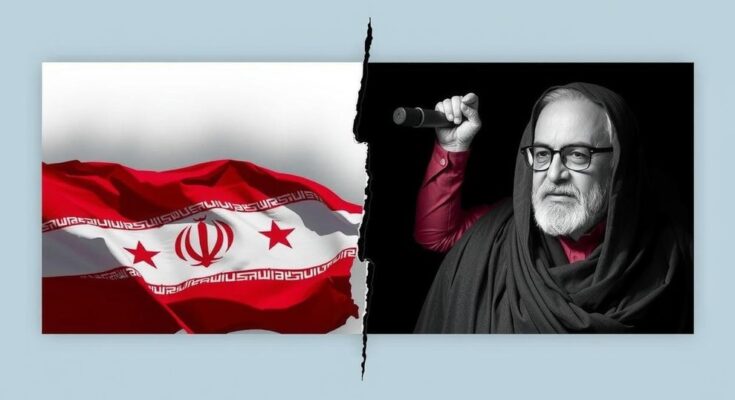The fall of Bashar al-Assad has caused a split within the Iranian government, with factions debating the future of Iran’s involvement in Syria. The unexpected rapid advance of rebel forces has prompted criticism of the current regime’s foreign policy, while some see opportunities for reevaluation amidst the chaos. Iranian officials express determination to adapt their strategies in light of the shifting power dynamics in Syria.
The Iranian establishment has experienced significant division regarding its stance on Syria following the rapid decline of President Bashar al-Assad’s regime. Officials in Tehran were taken aback by the swift gains made by rebels, who seized control of several cities with little resistance. Iranian state media transitioned its terminology, labeling the insurgents as “armed groups” instead of “terrorists” as the situation escalated toward Damascus. Recent reports indicate that Iran received assurances regarding the protection of Shia shrines from rebel leadership, aimed at easing tensions within the conservative religious community. In the wake of these developments, opinions within Iran have sharply diverged, with some hardliners criticizing the government’s foreign policy while others see potential benefits in reevaluating alliances amidst the regime’s struggles. The Iranian leadership has expressed determination to maintain influence in Syria, despite a shifting power structure, and plans to adapt its strategies accordingly. Furthermore, experts are weighing the implications of Iran’s weakening foothold in Syria in relation to its broader regional ambitions and challenges to its nuclear program.
The upheaval in Syria, marked by the rebellion against Assad, represents a critical moment for Iran, which has maintained strong support for the Assad regime. Iran’s involvement in Syria has historically been centered on bolstering power against both extremist groups and Israel. The rapid disintegration of Assad’s rule has startled Iranian leaders who did not foresee such a swift collapse. This crisis reveals fractures within the Iranian establishment regarding future policy directions, with firm divisions between hardline factions advocating for continued support in Syria and reformist segments urging reassessment of the costly alignment with Assad. Furthermore, the potential loss of leverage in Syria poses a broader threat to Iran’s regional ambitions, particularly concerning its relationship with Hezbollah and strategies against the West.
In summary, the rapid fall of Bashar al-Assad has led to deep divisions within the Iranian establishment reflecting differing views on foreign policy and national strategy. While some factions advocate for continued engagement and support for proxy forces in Syria, others argue for a reevaluation of Iran’s approach to regional conflicts. The collective ethos of Iranian foreign policy is now under scrutiny as the government navigates the repercussions of its strategic choices. In light of these developments, the future of Iran’s influence in Syria and its regional aspirations remains uncertain, potentially reshaping its geopolitical landscape fundamentally.
Original Source: www.middleeasteye.net




